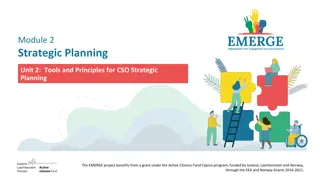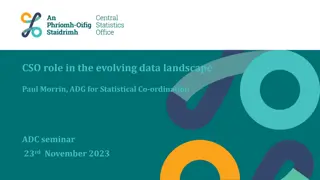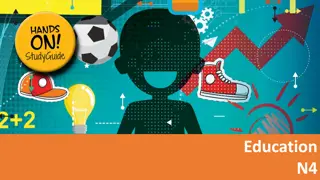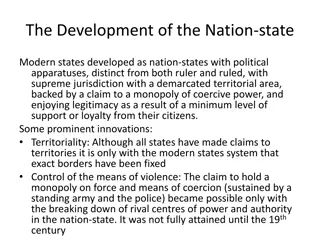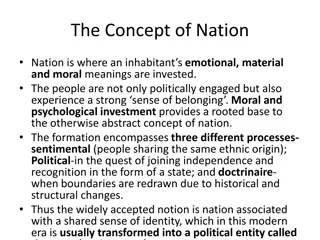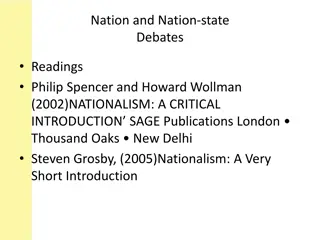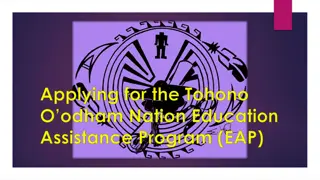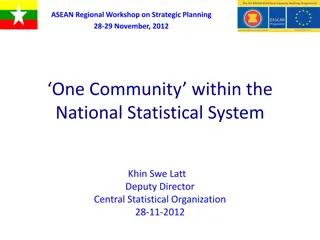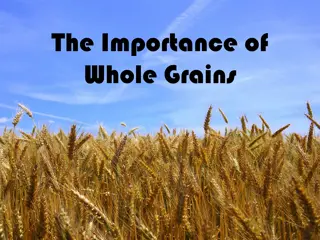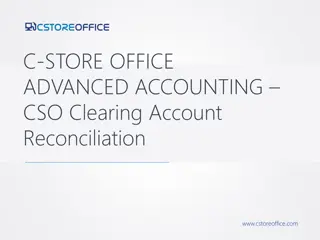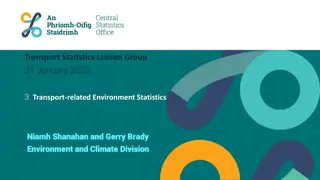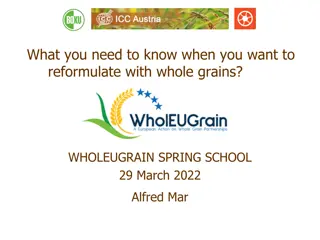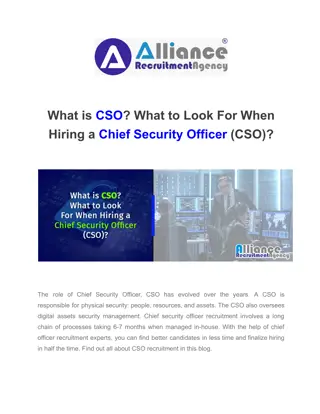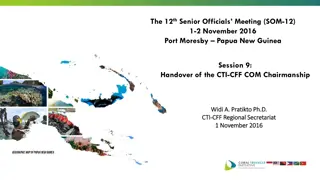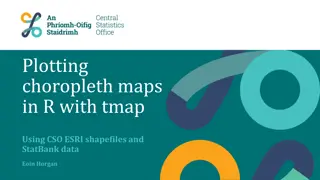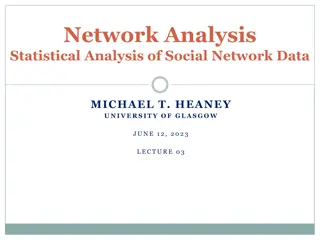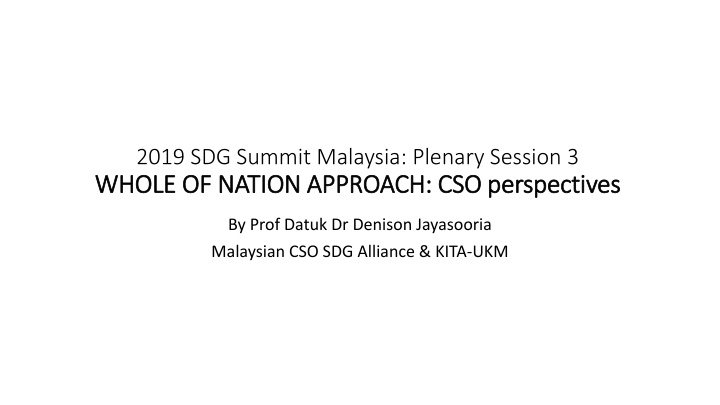
CSO Perspectives on Implementing SDGs in Malaysia: Key Concerns and Recommendations
Gain insights from Prof. Datuk Dr. Denison Jayasooria on adopting a whole-nation approach for SDG implementation in Malaysia. Explore key concerns and recommendations across development frameworks, poverty measurements, and environmental justice for sustainable progress.
Download Presentation

Please find below an Image/Link to download the presentation.
The content on the website is provided AS IS for your information and personal use only. It may not be sold, licensed, or shared on other websites without obtaining consent from the author. If you encounter any issues during the download, it is possible that the publisher has removed the file from their server.
You are allowed to download the files provided on this website for personal or commercial use, subject to the condition that they are used lawfully. All files are the property of their respective owners.
The content on the website is provided AS IS for your information and personal use only. It may not be sold, licensed, or shared on other websites without obtaining consent from the author.
E N D
Presentation Transcript
2019 SDG Summit Malaysia: Plenary Session 3 WHOLE OF NATION APPROACH: CSO perspectives WHOLE OF NATION APPROACH: CSO perspectives By Prof Datuk Dr Denison Jayasooria Malaysian CSO SDG Alliance & KITA-UKM
In preparation for this SDG Summit CSOs met on two occasions (Oct 10 & Oct 23) to identify achievements, challenges, gaps, hurdles & list recommendations About 20 individuals from CSOs have written up 11 papers as reflections under three main headings: Overarching themes; Target groups & Means of Implementation. Arising out of our discussions are 5 Key concerns & recommendations Introduction Introduction Thank you for this invitation to share CSO perspectives in adopting a whole nation approach in implementing the SDGs The Malaysian CSO SDG Alliance has been active since Oct 2015 & have played an active role in EPU & UN SDG dialogues in 2017 to 2019 We are now in 2020 venturing in localising SDGs as secretariat to the APPGM SDGs
1 1 Development not based on charity but a Development not based on charity but a rights based framework rights based framework KEY CONCERNS RECOMMENDATIONS CSOs call for change in the development agenda Do not measure development just as Gross Domestic Product (GDP). A need for balance using Green Economy Indicators Need for environmental accounts for national accounts A better utilization of the Malaysian Wellbeing Index. Need for a Right to Development approach Compliance with the United Nations Declaration on Indigenous People & the Convention on the Elimination of all forms of discrimination against women (CEDAW) Adopt multi dimensional approach: Indigenous poverty must link to land issues. Conservation of natural resources
2 measurement of poverty Inclusivity and more realistic KEY CONCERNS RECOMMENDATIONS A call to review the UN Special Rapporteurs report on Poverty Review poverty measurement Work on social security measures SDGs of leaving no one behind provides a good opportunity to identify the most vulnerable sections of our society. Addressing inequality is a must and not just poverty
3 3 Towards Environmental Justice & Towards Environmental Justice & Sustainability Sustainability KEY CONCERNS RECOMMENDATIONS A call to enshrine Rights to a clean and healthy environment in the Federal Constitution so that stronger environmental laws and policies can be developed Need more investigations and enforcement, Need for greater public participation. Full understanding of sustainable resource management needed Our development model has a bias towards profits and not consistent with resource conservation. Concern is wildlife crime
4 4 Localising SDG and effective delivery Localising SDG and effective delivery KEY CONCERNS RECOMMENDATIONS CSO recommend that the Federal government undertake an SDG awareness program and a capability building program for both state and non-state actors. There is a need to collect disaggregated data and undertake periodic assessments (page 51). While the Ministry of Economic Affairs has been effective in incorporating SDGs into the development planning agenda, there is concern that this has had very little impact at the line Ministries at the Federal, State and local levels.
Robust engagement: Moving from being Robust engagement: Moving from being consulted to becoming a partner. consulted to becoming a partner. KEY CONCERNS While there has been consultation for input receiving from CSO, it is not a partnership which enables access to information and to be part of the decision making process. 5 5 RECOMMENDATIONS It is proposed that the government formulates a national policy on engagement on a partnership model. The need to institutionalise this engagement process at the Federal. State and local levels. The rights to information (page 13) and access to justice (page 8) for citizen s action Call to strengthen institutional governance
Conclusion Conclusion This 2019 SDG Summit is a very important process for multi stakeholder engagement. Our focus for 2020 must be on localising SDGs and ensure effective partnerships among all the stakeholders. There is a need for a dedicated focal point in Government for the promotion & coordination of the SDG agenda The National SDG Steering Committee which is the multi stakeholder engagement must be very active. Since 2016 when it established it has met only twice (2016 Nov & 2019 Oct). More resources must allocated for the promotions, coordination and implementation of SDGs

